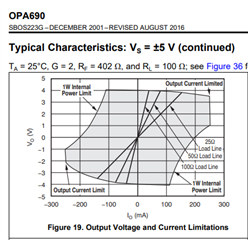Can I power this OPAMP with +10V and -1V? , trying to use it to drive a load cell circuit and trying to avoid the cross over distortion by adding a small negative bias.
-
Ask a related question
What is a related question?A related question is a question created from another question. When the related question is created, it will be automatically linked to the original question.



